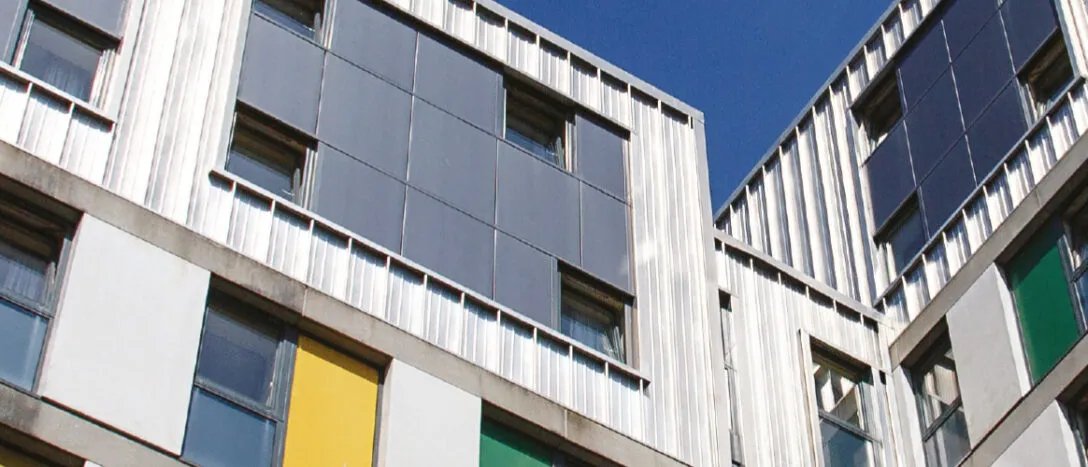Growing interest in tertiary education and undersupply of purpose-built student accommodation means student housing in the world’s largest further education markets continues to attract investor interest, even amid rising yields.
The rapid rise in interest rates in the second half of 2022 sharply reversed the cap rate compression seen in the first half of the year. CBRE data for the US shows average student cap rates falling 81 basis points in the first half, but rising 66bps in the second. However, operating performance in the sector has been strong since universities reopened after the pandemic.
Jasper Gilbey, head of housing, alternatives and strategic transactions, Europe at Nuveen Real Estate, says: “Student housing has remained very robust. I think that is a combination of student housing having typically attracted a slightly higher yield compared with other residential subsectors and also because we have seen a huge shift in capital towards student housing.
“Capital is attracted by a combination of very low provision rates across Europe and a feeling that even in a market downturn there is an increasing shift into education, which is hiking enrollment numbers.”
The pandemic caused huge upheaval to university students, with some forced to isolate in their accommodation and turn to online learning. However, while office workers have been reluctant to return to their desks, the pandemic and an increase in online learning has not dimmed the attractions of university, either at home or overseas. Furthermore, with immediate job prospects looking less than enticing for graduates, university is a good place to add knowledge and ride out a faltering economy.
Jeff Adler, vice-president at data company Yardi Matrix Systems, says: “No doubt online learning is expanding learning opportunities for more Americans, but it does not seem to be at the expense of the in-person experience at the largest state schools. The increase in online learning does not seem to have any impact on the enrollment of the largest and best-regarded universities.”
The same applies in other markets, says Foo Pei Teng, chief executive officer, student housing at Singapore’s Mapletree, which manages 24,000 student beds in the UK, US and Canada. “While universities have developed better capabilities to provide online learning post-covid, university students still consider face-to-face teaching, tutoring and other enriching on-site learning experiences key to delivering value for money in their studies.
“There was a record number of applications and acceptances for university places in the UK, with 563,000 acceptances, a rise of 4 percent from 2019. The strong demand for student housing has translated to strong pre-leasing for the current cycle in our portfolios across the US and UK.”
Higher learning numbers
Meanwhile in the U.S, record pre-leasing for the 2023-24 academic year has driven rental growth of 8 percent, says Adler. “This is influenced by both a strong desire of students to return to campus, a broader applicant pool with more open admission standards, a significant increase in multifamily “shadow” rents that make the dedicated student housing sector much more price competitive relatively, and modest new additions to supply.”
The first half of 2022 saw record transaction volumes, inflated by Blackstone Group’s $12.3 billion privatization of American Campus Communities, the only US real estate investment trust specializing in student accommodation. This deal means Blackstone now owns nearly 150,000 beds across the US. Transactions slowed in the second half of the year as financing costs ballooned, but market players say there is plenty of capital on the sidelines, waiting for pricing to settle.
Adler says: “While sales transactions are muted due to interest rate increases and a bid/ask spread currently, the strong fundamentals are building up institutional investor interest in the sector, and the development pipeline is growing. We expect 40,000 beds to be delivered in 2023, and for slightly lower, but similar numbers to be delivered over the next five years, equal to 3-4 percent in inventory per year.”
Nuveen’s Gilbey says: “We are seeing huge levels of investor demand for platforms in the student space. A number of investors are looking to build €1 billion platforms across Europe.”
The most developed and liquid markets for student housing investors are the US and UK, while Canada, Australia, Germany, France, Italy and the Netherlands, which are all attracting more international students. “In Asia, the sector is still in its nascent stage, with no large institutional investors participating on a large scale”, said Ms. Foo of Mapletree.
Eri Mitsostergiou, world research director at Savills, says structural drivers support long-term growth. The number of students worldwide will rise to 594 million by 2040, from 236 million in 2020, according to UNESCO. The number of international students – who are more likely to choose PBSA – will also rise to 6.9 million by 2030, from 4.6 million in 2015, notes education information provider Studyportals.
“Our research projects require 18 million new PBSA beds in major higher education markets around the world over the next decade. Along with growth in established markets such as the US, UK and France, we expect to see growing demand from countries such as India, which has a very large and growing student population and becoming a destination for international students”, Ms. Mitsostergiou said.
“Giving students what they want
While the pandemic has not lessened demand for purpose-built student accommodation, asset managers need to keep abreast of changing demands.
In particular, the pandemic has shown the value of collaborative and shared spaces.”
Jeff Adler, vice-president at data company Yardi Matrix Systems, says: “The students headed to school seem more focused, understanding of the costs involved, and desirous of getting the most from their experiences. Amenities and services remain focused on fast internet speeds, concierge services, more study spaces, transport to campus if needed, and, as usual, fun common spaces.”
Foo Pei Teng, chief executive officer, student housing at Singapore’s Mapletree, says her company continues to provide more collaborative spaces for study and entertainment alongside ensuring students can access the facilities management team onsite or online. As well as “ensuring safe and secure accommodation to develop a sense of belonging and inculcate independent living,” Mapletree is in the process of upgrading internet speeds across its portfolio.
She also notes that affordability is still key for many students and that offering a range of amenities and price points is important.



